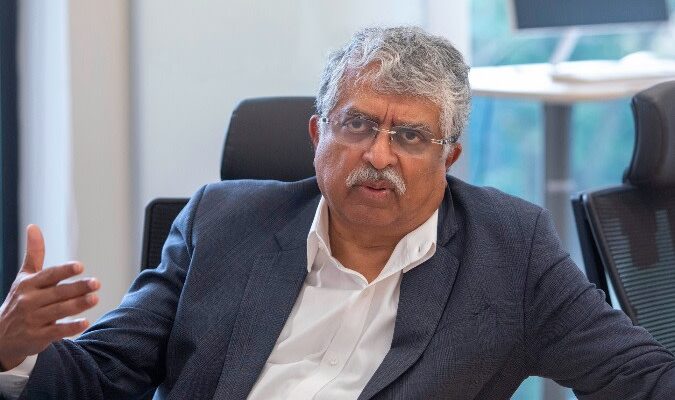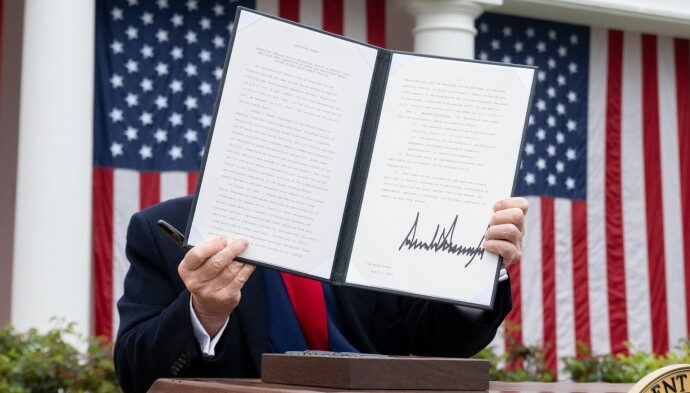Unlock the Editor’s Digest for free
Roula Khalaf, Editor of the FT, selects her favourite stories in this weekly newsletter.
Foreign investors bought a record amount of Japanese equities and bonds in April, as the chaotic aftermath of Donald Trump’s “liberation day” tariffs made Tokyo a global haven for the “de-dollarisation” trade.
Figures released this week by the ministry of finance showed that last month, as extreme volatility gripped markets and the US dollar faltered, overseas investors were net buyers of Y8.2tn ($57bn) of Japanese securities.
That marked the biggest monthly rush for Japanese assets since comparable records began in 2005 and was over three times higher than the 20-year average for April.
The unprecedented buying spree by foreign investors involved $25.5bn net purchases of equities, the biggest amount since April 2023, and $31.5bn of long term bonds, the largest since July 2022.
Traders said that the total had probably been boosted by purchases of Japanese government bonds (JGBs) by the reserve managers of global central banks.
Yujiro Goto, chief FX strategist at Nomura, said that purchases of Japanese long-term debt “significantly exceeded” seasonal patterns and stood out for occurring in tandem with a rush into equities.
Overseas investors, he said, may have been shifting US funds into Japan as part of the “de-dollarisation” trend and viewed Japan as a logical choice because of the size and relative stability of its markets.
Mansoor Mohi-uddin, the chief economist of the Bank of Singapore, said that April’s huge “buy Japan” spree had taken place against a background of investor shock at US policy shifts, trade war and Trump’s criticism of US Federal Reserve chair Jay Powell.
“There is probably some truth to the idea that Japan was seeing the effects of de-dollarising in April,” said Mohi-uddin. “It may be that we are seeing some movement by foreign central banks into JGBs. When they diversify they are looking for liquid markets, and for a reserve manager, Japan stands out in that regard.”
With Trump this week agreeing to pause additional tariffs on China for 90 days, markets have stabilised and it is unclear if the stampede into Japanese assets will continue.
In its most recent monthly survey of institutional investors, published on May 9, Bank of America noted an “almost unanimous” view among fund managers that the overall impact of the Trump administration’s economic policy changes would be stagflationary for the US.
The same survey, conducted in the period following Trump’s “reciprocal” tariff announcement, found that a “short US dollar” had become the most popular trade among fund managers.
BofA analysts wrote that while Trump’s policies induced uncertainty and led many to question the dollar’s “safe haven” status, its standing “remains intact in absolute terms and relative to all viable alternative currencies”.


